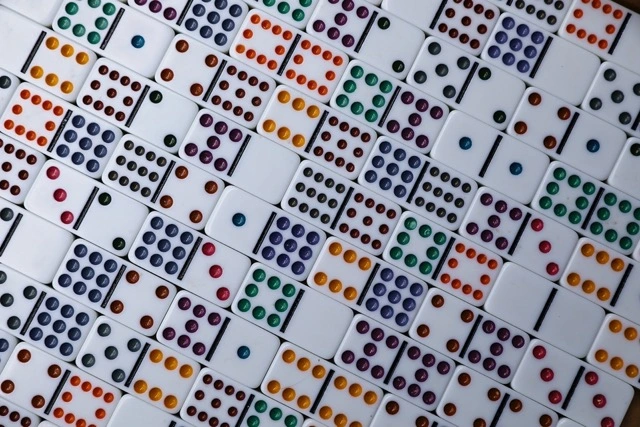Understanding Numeral Adjectives in Greek

Learning a new language opens up a world of opportunities, and Greek is no exception. One often overlooked but essential component of Greek is numeral adjectives, particularly for numbers ranging from 100 to 1000. In this article, we'll learn more about this topic, offering insights, explanations, and examples.
What are Numeral Adjectives?
Numeral adjectives are adjectives that express a definite number. Unlike cardinal numbers, which stand alone or function as nouns, numeral adjectives describe nouns.
Note
In Greek, numeral adjectives agree in gender, number, and case with the nouns they modify, making them slightly more complex than their English counterparts.
The Importance of Numeral Adjectives in Greek
Understanding numeral adjectives in Greek is vital for various reasons:
- They often appear in legal documents.
- They are frequently used in formal conversations and academic settings.
- Mastery of numeral adjectives enhances your Greek vocabulary and comprehension skills.
Greek Numeral Adjectives Chart for 100 to 1000
Here's a table to get you started:
| English Equivalent | Greek | Romanization |
|---|---|---|
| one hundred | εκατό | ekato |
| two hundred | διακόσια | diakosia |
| three hundred | τριακόσια | triakosia |
| four hundred | τετρακόσια | tetrakosia |
| five hundred | πεντακόσια | pentakosia |
| six hundred | εξακόσια | exakosia |
| seven hundred | επτακόσια | eptakosia |
| eight hundred | οκτακόσια | oktakosia |
| nine hundred | εννιακόσια | enniakosia |
| one thousand | χίλια | hilia |
Subscribe for more free lessons
The Basics: 100 to 200 and Beyond
Mastering the foundational numeral adjectives is crucial when you're learning Greek. In this section, we will focus on the range from 100 to 200 as a case study for a formula that holds true for all hundreds up to 900.
The Universal Formula: [Base number] + [Number]
For numbers in the hundreds, the formula is straightforward: you start with the base word for the hundred (like Εκατόν for 100, Διακόσια for 200, and so forth), and then directly add the number you wish to express.
Hundred - Εκατό (Ekató) In Greek, 'hundred' is Εκατό (Ekató). It's an essential base for numbers in this range and serves as a good introduction to this universal formula.
Example 1: One hundred and one - Εκατόν ένα (Ekatón éna) Here, 'one' (ένα) is added directly after Εκατόν (Ekatón).
Example 2: One hundred and ten - Εκατόν δέκα (Ekatón déka) For numbers like 110, you start with Εκατόν (Ekatón) and add δέκα (déka), meaning 'ten'.
Note
This pattern is not just limited to numbers between 100 and 199. It extends to all the hundreds — Διακόσια (200), Τριακόσια (300), and so on. In each case, you start with the base number for that particular hundred and directly add the number you're focusing on.
Understanding the Pattern: 200 to 900
The pattern that exists for numeral adjectives between 200 and 900. These numbers usually combine the Greek word for the number with the suffix -κόσια (-kosia). For example, "two hundred" in Greek is "διακόσια" (Diakósia), where "δια-" is derived from "δύο" (dýo), meaning "two". This pattern can help you understand the structure of these words and make it easier to remember them.
Neuter Plural Form of Numbers Between 100 and 1000
As mentioned earlier, numbers ranging from 100 to 1000 are neuter in Greek. When these numbers function as numeral adjectives, they generally take the gender and number of the noun they are modifying. Here are some examples to illustrate:
-
Έχουν διακόσια βιβλία στη βιβλιοθήκη τους. They have 200 books in their library. The noun "βιβλία" (books) is neuter, so "διακόσια" remains in its neuter form.
-
Η εταιρεία έχει εκατόν πέντε νέους πελάτες. The company has 105 new clients. The noun "πελάτες" (clients) is masculine, but "εκατόν" remains invariable.
-
Η εταιρεία πούλησε τριακόσια αυτοκίνητα. The company sold 300 cars. The noun "αυτοκίνητα" (cars) is neuter, so "τριακόσια" stays neuter.
-
Η Μαρία έχει πεντακόσιες πέτρες στη συλλογή της. Maria has 500 stones in her collection. The noun "πέτρες" (stones) is feminine, so "πεντακόσιες" takes a feminine ending.
Mastering numeral adjectives in Greek can be a challenging but rewarding experience. Like any other aspect of language learning, practice makes perfect. So the next time you're reading a Greek text, pay special attention to these fascinating words!


